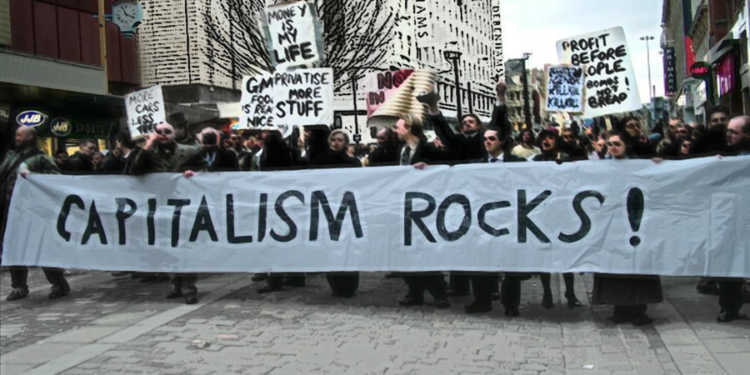The morality of free markets could be decided on whether they led to the greater good of humankind or not? When we look for examples across the world, we find that people in free-market countries enjoy a high quality of life because trade and commerce is encouraged there. The ‘human greed’ led to the exploration of new avenues for trade and commerce. The effort by Europeans to trade with India was responsible for the discovery of ‘New World’. On the other hand, socialist or communist regimes led to murder and genocide. The moral basis of free markets comes from the fact that they believe in free interactions between individuals without any coercion from a ‘powerful entity’. The free markets let individuals decide their own fate rather than some ‘wise men’ who sit on top deciding fate of the people in the lower strata of society.
The government intervention in the market was based on the goal that there is an ‘equilibrium’ which could be achieved if some wise man (interestingly most of them were men) plans the course of action. So, these wise men planned coercive actions to be taken against ‘individual liberty’ to improve the market outcomes and achieve equilibrium. The equilibrium strategy came from Victorian mechanics and human was taken as ‘rational agents’ just like machines. So, just like machines, if ‘wise men’ design certain plans then it could lead to efficient and ‘predictable outcomes’. The monetary policy targets and inflation targets were results of this thinking. The monetary stimulus and fiscal stimulus at the time of economic slowdown were also results of this ‘mechanical concept of equilibrium’. But, research in ‘behavioral economics’ has demystified the prevalent thinking that human being behaves like ‘rational agents’. A human being’s response depends on changing immediate surroundings and their action could not be ‘predicted’ at all. There is much chaos in human thinking as well as in nature, so nothing could be decided or predicted. So, planned model of economic development is bound to collapse because it is not in sync with actions of human being.
The morality of free markets lies in giving ‘freedom’ to the human being to decide their course of action rather than ‘controlling’ them. Planning a course of action for human beings has led to disastrous outcomes in past. First ‘organized religion’ which decided a course of action for the human being to achieve ‘salvation’ led to hatred and war among individuals. This was the reason that unorganized religions like Hinduism were less violent than organized ones. The linear conception of history or human being where ‘what one should do’ and ‘what one should not do’ is decided to achieve panned outcomes has led to bloodshed. The Marxist philosophy is also derived from the linear conception of history where society moves from being feudal to capitalist ultimately leading to communist. So, Marxism preached an ‘imagined equality’ which is against ‘nature’. Marxism led to atrocities throughout the world. USSR, China, Latin America, Southeast Asia, Korea has witnessed the killing of millions of people for ‘imagined equality’. In India, the hinterlands are suffering because some people picked up arms to make the country ‘Maoist state’.
The coercion to the liberty of individuals has led to the bloodshed. It has taken the form of organized religion, Marxism, and socialism. History has revealed from time and every time whether it comes in form of religion or Marxism. Now if we go to societies which value human liberty they achieved considerable success because they give individuals the chance to explore their capabilities and weaknesses. In India, until we did not free ourselves from the clutches of Fabian socialism, economic growth was low. In Indira Gandhi years, socialism struck the country with full vengeance and income growth was lower than population growth for many years. Millions of people lived their whole life in poverty and die of diseases due to socialist economic policy.
The free markets made India fastest growing major economy in the world. Every year thousands of people come out of clutches of poverty due to free markets. Life expectancy, quality of life, the Human Development Index is substantially better when compared to socialist days.
India and China are prime examples of how free markets could lead an improved life of individuals and nations. The societies which are ‘relatively free’ have been the hub of innovation and entrepreneurship. The 19th century belonged to Britain and 20th century to America because they gave liberty to their citizens. So, free markets are moral because they had done ‘greater good’ to a human being. The free market is also moral because it allows an individual to take decision for him/her without any fear of coercion. The planning model derived from Victorian mechanics failed to improve the quality of human life because it is against human nature.

























